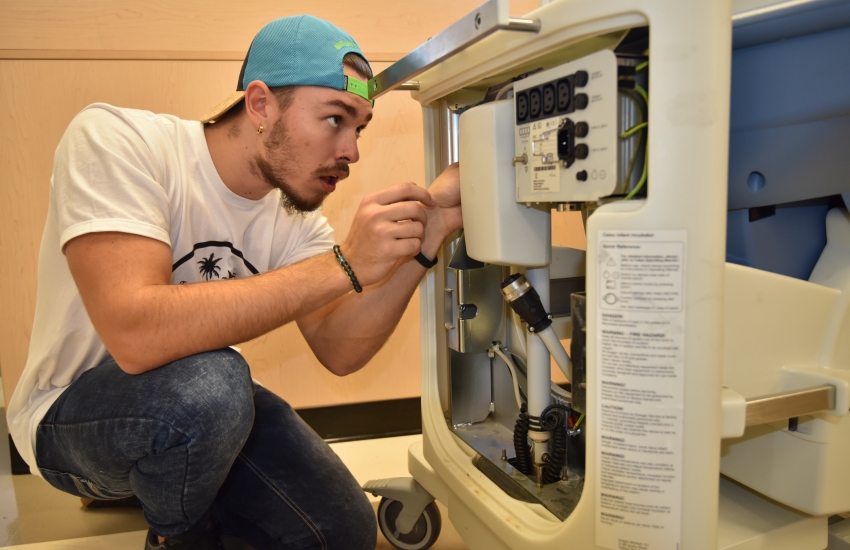
Ontarians overwhelmingly support proposals to expand the range of career-focused degree programs at colleges, with nearly 70 per cent supporting the creation of three-year degree programs, a new poll has found.
Colleges are urging the provincial government to approve policy changes that would allow them to broaden their career-specific degree programs.
The proposed changes would include the creation of new three-year degree programs, an increase in the number of four-year degree programs and the creation of master’s degree programs in specialized technical areas such as robotics and animation. The changes would create more career options for graduates, including new opportunities to advance into management positions.
Ontario’s colleges currently offer a mix of four-year degree programs, two-year and three-year diploma programs, in-class apprenticeship training and post-graduate certificate programs for university and college graduates.
College President Patti France said the three-year diplomas that Ontario colleges currently offer are out-of-sync with academic standards in other parts of the globe. “The completion of a minimum of three years of study at a postsecondary institution, regardless of its educational format, merits the designation of a ‘degree,’” she said.
“Expanding the degree programs at colleges will help more students acquire the specialized expertise sought by employers.”
Unifor and Flex N Gate, a global company that supplies the automotive sector, wrote letters of support for the credential reform that colleges seek from the provincial government.
“Ontario’s college system graduates are consistently motivated, skilled and talented contributors to our companies,” wrote Guido Benvenuto, Flex N Gate’s Vice President of Engineering. “Within our companies, their exemplary college learning experience results in the kind of technical and leadership attributes that are fully consistent with a degree designation. Our college graduates are rigorous problem identifiers and creative problem solvers; more often than not, they also develop the kinds of strategies and policies that amplify their value to our companies.”
Dino Chiodo, director of auto for Unifor, said his union strongly supports the college’s initiative to respond to the evolving skills needs of the auto industry as the auto industry transitions to electric vehicles. “Enhancing access to pathways to degree level educational programming at St. Clair is crucial to ensuring that Unifor members and other workers in the Windsor-Essex region can fully support and benefit from this auto industry transition.”
The online survey of more than 1,000 Ontario adults was conducted last month by Innovative Research. Overall, the research found strong support for broadening the colleges’ range of degree programs.
Specific results included:
- A total of 69 per cent of respondents supported or strongly supported the proposal to allow colleges to offer three-year degrees. Twenty-six per cent were neutral or unsure, and six per cent were opposed.
- Nearly 80 per cent of respondents believe expanding degree programs at colleges is a good way to create more opportunities for students, with 79 per cent supporting or strongly supporting the idea, 18 per cent neutral or unsure and only three per cent opposed.
- More than half of respondents supported creating master’s degree programs at colleges, with 52 per cent supporting the idea, 11 per cent opposed, and 36 per cent neutral or unsure.
The online survey of 1,056 Ontarians 18 or older was conducted June 21, 2021, by Innovative Research Group Inc. for Ontario’s colleges. Because it was an online survey, there is no calculation of the margin of error.